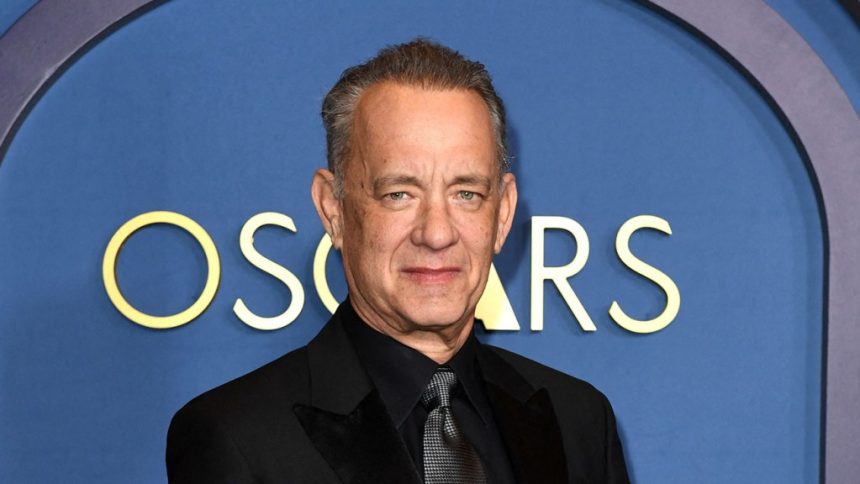Hollywood studios have long made a point of promoting tentpole movies at the Cannes Film Festival, using the Cote d’Azur location to highlight their A-list titles with splashy promotional campaigns.
A similar, if less flashy, version of the big Cannes launch took place Tuesday for The Americas, the long-awaited premium wildlife documentary series from BBC and NBCUniversal. Producers of the series, narrated by Tom Hanks, revealed how their team used cutting-edge technology to take viewers inside the lives of critters from across the continent.
The footage, screened at international television confab MIPTV, showed extraordinary sights, including a bear making a treacherous half-mile descent down a crumbling cliff face, with two cubs clinging to her for life, images captured by a drone camera.
The Americas filmmaking team went to extraordinary measures crisscrossing the continent to capture its wildlife on screen. The team prepped for five years and made 180 expeditions over 8,700 miles of landscape to deliver the 10-episode show with “its toes in the Antarctic and its head in the Arctic,” said executive producer Mike Gunton. There will be an 11th, making-of episode featuring behind-the-scenes footage depicting the lengths the producers went to get the shots they needed.
“I had the idea that there was an area of the planet no one had ever really covered,” said Gunton. “It’s the Americas. What’s so exciting is that nowhere has this range. You cannot imagine anything more diverse. As a wildlife filmmaker, you are looking for superlatives. It hasn’t got elephants but it’s got everything else. [We] are delivering things people have never seen before.”
Animals, however, don’t read scripts. Gunton and series editor Holly Spearing detailed several horror stories of best-laid plans going to waste when the stars refused to cooperate with the schedule, like a bisson walking “off set” spoiling a carefully orchestrated day of filming. But patience also paid off, as in the case where, after three years of filming wild horses, the team captured an unexpected fight between two rival stallions, providing dramatic bonus footage.
One of Gunton’s first assignments, decades ago, was to attempt to show how sperm whales hunt. “It was a disaster,” he said. “Forty years later, we have done it. We reveal what happens when sperm whales go diving. The mystery of how they get their prey has long been a secret. We spent two years developing the technology giving a whale’s eye view as they dive into the abyss.”
Toby Gorman, president of Universal Television Alternative Studio, said the extraordinary lengths, and the extraordinary costs, required to make the series are evidence of the ongoing interest in premium factual programming. “It was expensive. There were so many risks. It is the most expensive, unscripted project in NBC’s history, as far as I know,” he says. “But we are confident it’s been worth it.”
Gorman said the choice of Hanks as narrator was a simple one. “We asked ourselves, who is the American version of [BBC wildlife documentary legend] Richard Attenborough? We agreed internally there was a list of one: Tom Hanks. What we didn’t know was if he would agree to do it. [But] it resonated with him,” he said.
The team also lucked out with the music, signing up Oscar-winning composer Hans Zimmer for the series score.
NBCUniversal Global TV Distribution is selling The Americas worldwide. The series premieres on NBC in 2025.










